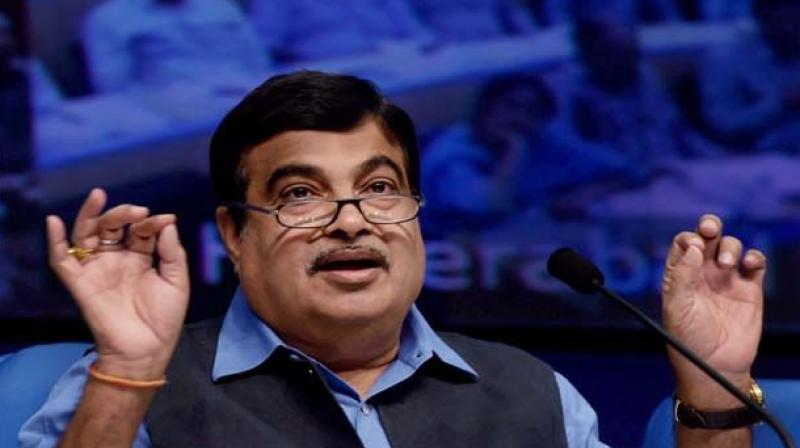How the promise of GST is shaking up India's 'zero mile' city Nagpur
Mr Gadkari has said the government has sanctioned Rs. 25,000 crore ($3.7 billion) worth of projects linked to the Nagpur.

Mumbai: When Indian retailer Future Group opened a warehouse on the outskirts of Nagpur three years ago to supply its supermarkets, the building was surrounded by dry, barren fields. Now it is only one in an expanse of distribution centres, storage depots and factories.
A dusty provincial city of 2.5 million, Nagpur is at the geographical heart - India's "zero mile" marker, the centre of the country, has been located here since the British colonial era.
It is also at the heart of the action now as the government prepares to roll out the biggest fiscal overhaul since independence: GST, a national value-added tax that will replace a proliferation of local levies.
The Goods and Services Tax itself, due to be introduced in April next, could well see delays.
But Nagpur is already benefiting from a change that will allow companies to move goods across state borders without being hamstrung by local levies. Property prices have surged as companies from Amazon to tractor maker John Deere have set up central facilities in the city to cut down on transport costs.
"The advantage of Nagpur is simple. All metros (big cities) in the country are all about 900 km from there," said Rakesh Biyani, Future Group's joint managing director.
Consultancy Alvarez & Marsal, which specialises in turnarounds and performance improvement, estimates firms can cut logistics costs by 25 per cent if they consolidate their warehouses in Nagpur.
Future Group is quadrupling the land it owns at the edge of the city, with plans to turn Nagpur into its biggest warehousing facility supplying more than 250 of its Big Bazaar supermarkets.
Mahindra Logistics, part-owned by cars-to-IT conglomerate Mahindra Group, has accelerated plans to buy more land in Nagpur since the new tax was approved in August. E-commerce giant Flipkart and even guru-turned-businessman Baba Ramdev are setting up facilities in Nagpur or planning to.
Land prices are up by as much as a fifth since April, real estate agents say, as developers snap up farmland.
Viren Thakkar, managing director of warehouse manager Logistics Park India, said he was getting three enquiries a week about Nagpur, up from one a month a year ago. "I have started aggregating land parcels in the city, anticipating demand," he said.
Nagpur has seen ambitious plans before. Almost a decade ago, India was promoting plans to build an international metropolis here - then the global financial crisis hit and plans for export-oriented special economic zones were put on ice.
But since then, India's consumer goods market has blossomed, and so too has the pressure for better logistics hubs: the e-commerce industry, for example, has grown five-fold between 2013 and 2015, from $2.9 billion to $16 billion (around 19,300 crore to around 1.06 lakh crore), Deloitte estimates.
Nagpur is also in a rosy political spot. The city is home to the Rashtriya Swayamsevak Sangh or RSS, the ruling BJP's ideological mentor and the local MP is India's powerful transport and shipping minister, Nitin Gadkari.
Mr Gadkari has said the government has sanctioned Rs. 25,000 crore ($3.7 billion) worth of projects linked to the city since Prime Minister Narendra Modi came to power in 2014, including starting work on a new ring-road and acquiring land for a dry port with rail and road connections to Mumbai, India's biggest city and largest port 825 km to the west.
"Nagpur is the zero mile, where you can manufacture and distribute in the country and the logistics cost is less. There are huge opportunities," Mr Gadkari said in an interview at his office.
Mr Gadkari said he wants to accelerate construction of a long-delayed international cargo hub and expanded airport, spread over an area the size of 4,000 football fields, so that it provides 50,000 jobs by 2019, compared to 9,600 staff today.
What is not clear is how quickly these ambitious projects will be completed. While a new expressway to Mumbai has been approved, critics say construction will mean acquiring land from reluctant farmers - a slow process.
Mr Gadkari's international cargo hub has been partly constructed and some tenants have arrived. But the airport expansion has stalled, although a tender for the project is likely to be launched this year.
There is little question India needs an efficient hub. It is hampered by creaking infrastructure, with many roads and rail links dating to the colonial era. It has few cold storage networks, and cross-country transport is at glacial speeds.
Fractured tax systems among India's 29 states and seven other territories have hardly helped. Goods trucks wait days at checkposts at state borders for clearance and payment of local taxes before they can proceed. That has blocked movement of goods and encouraged firms to operate multiple warehouses across the country.
Mahesh Y Reddy, director general of the Infrastructure Industry and Logistics Federation of India, said it was sometimes cheaper to send goods from Mumbai's port to Dubai than to Nagpur, less than half the distance away, because of delays in shifting goods onto trucks and then the slow haul through the interior of the country.
"Ultimately, it's because of these inefficiencies that the likes of Nagpur do not become industrial hubs," Mr Reddy said. "They remain as they are."

